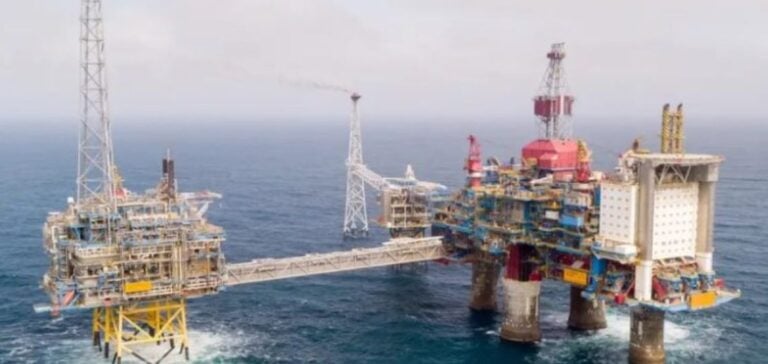This announcement enabled natural gas prices to come back down after a sharp jump the previous day. On Monday, the Dutch TTF futures contract, Europe’s main benchmark, reached its highest level of the year at 38.70 euros per megawatt-hour (MWh). A price spike fueled by concerns over the closure of the crucial Langeled gas artery, following the detection of a crack in a pipe on the Sleipner Riser platform on Sunday.
Repairs under close surveillance
According to Randi Viksund, Gassco’s Communications Manager, repair work on the crack detected on Sleipner Riser is progressing well.
“Based on current knowledge, the Langeled pipeline should be back in service by Friday,” she said.
These words were eagerly awaited by European markets which have been extremely dependent on Norwegian natural gas imports since the start of the conflict in Ukraine.
Lower prices in response to progress in repairs
Indeed, it was the prospect of such a return to normality that calmed bullish ardor on Tuesday. At around 13:45 GMT, the TTF futures contract was down 3.91% at 34.65 euros per MWh, erasing part of the previous day’s jump. Further proof of Norway’s strategic importance to Europe’s energy supply.
Norway, a key supplier in the face of geopolitical tensions
In the tense context created by the war in Ukraine, Norway has become a key player in Europe’s energy supply. At a time when the Old Continent is seeking to reduce its dependence on Russian hydrocarbons, the slightest disruption to a major supplier such as Norway has a major impact on the volatility of natural gas prices. The Scandinavian country saw its gas exports to Europe jump by 8.3% year-on-year in the first quarter of 2023, according to Statistics Norway. This increase is valuable for European countries, but also increases their vulnerability in the event of an incident affecting this crucial source of supply.
Focus on full recovery
This is why the speed of repairs on Langeled and its rapid return to normal operation will be closely scrutinized by European markets. Any prolonged disruption of this transit corridor could quickly give rise to new risks of pressure on prices, with all the repercussions this would entail for consumers and economic activity.
The energy crisis triggered by the Russian invasion shows once again just how important a secure supply of energy is, even for well-supplied regions such as Western Europe.






















